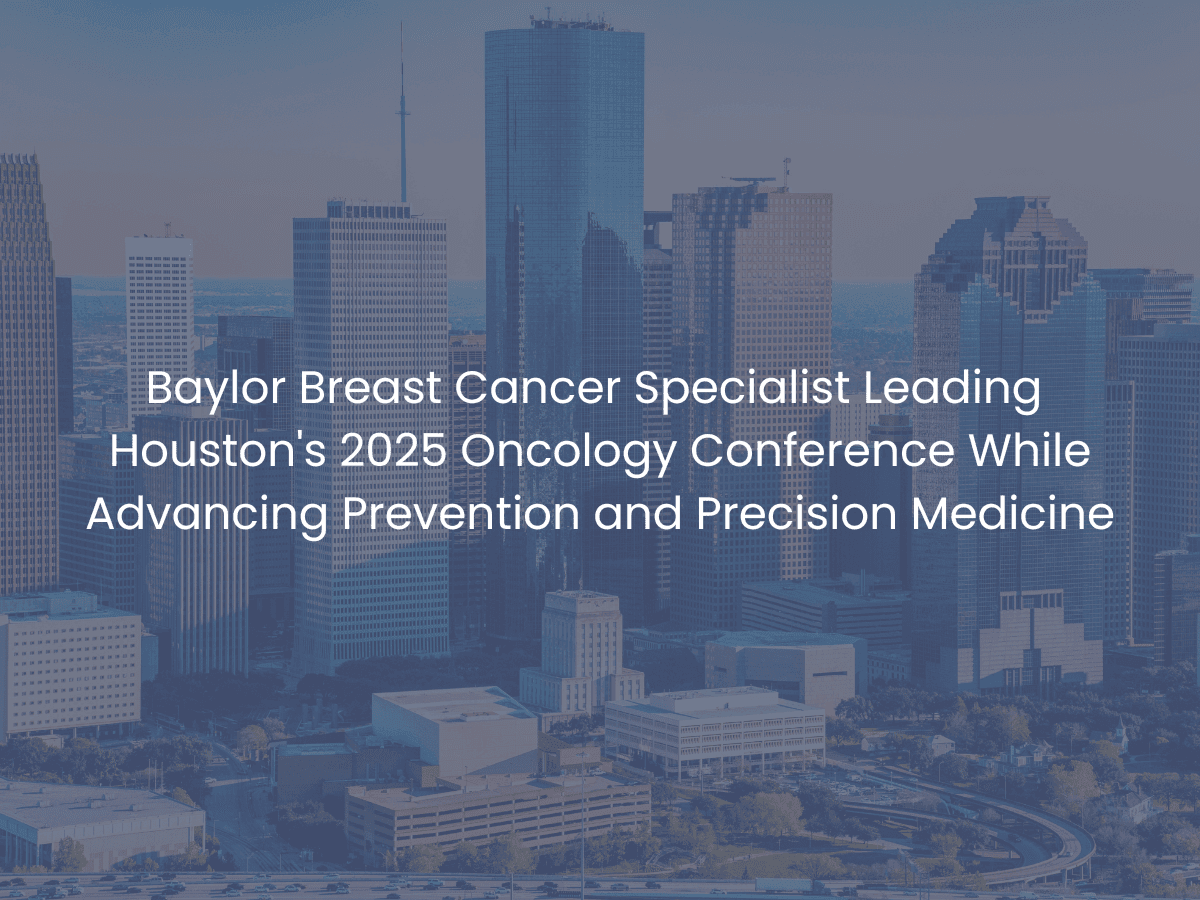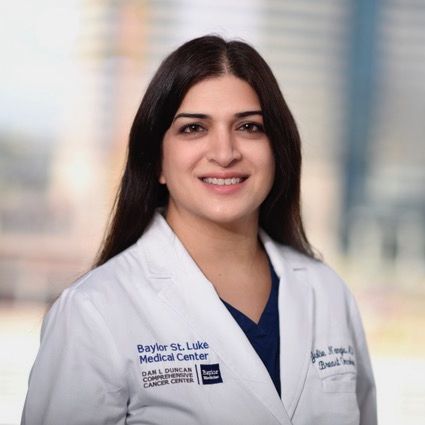Baylor Breast Cancer Specialist Leading Houston's 2025 Oncology Conference While Advancing Prevention and Precision Medicine

Author
Binaytara Team

During her formative years in medical school and residency, Dr. Julie Rani Nangia's career path took a deeply personal turn when her maternal aunt was diagnosed with breast cancer. "When you have a personal connection to a disease type in medicine, you tend to want to learn more about it, read more about it," Dr. Nangia reflected. That pivotal moment, combined with her longstanding interest in genetics, would ultimately shape her into one of Houston's leading breast cancer specialists.
As a tenured Associate Professor of Medicine at the Lester and Sue Smith Breast Center at Baylor College of Medicine and director of the Breast Cancer Prevention and High Risk Clinic, Dr. Nangia has dedicated nearly 15 years to revolutionizing breast cancer treatment and prevention. Her expertise spans from cutting-edge precision medicine to ensuring equitable care for Houston's most vulnerable populations, positioning her as a leader in both academic medicine and community health initiatives.
Understanding that innovative treatments mean nothing if they do not reach patients who need them, Dr. Nangia has embraced an inclusive approach to cancer care that bridges academic excellence with community engagement. Through her partnership with Binaytara, an oncology nonprofit based in Bellevue, Washington, she co-chairs the CME-accredited 2025 Updates in Hematology and Oncology Conference in Houston. Her involvement with the organization began when she was first asked to chair a Best of San Antonio Breast Cancer conference, an experience she found rewarding for multiple reasons. "It gave me an opportunity to help connect our region, especially the different academic institutes, the fellows at those institutes, and the community," she explained.
The conference serves as more than just an educational forum: it is a vehicle for empowering the next generation of oncologists."We have a couple of sessions that follow a tumor board-style format, and we have traditionally invited either fellows or junior faculty to present those cases. I also think it is a great opportunity for junior attendings and fellows to present at a conference and lead case discussions."
Dr. Nangia's commitment to equitable care extends beyond conference halls to the front lines of cancer treatment. Through her work with the Harris Health System at the Smith Clinic, she provides care to Houston's underserved and underinsured population. "We have some of the highest show rates in the Harris health system," she noted, attributing this success to education and resource implementation specifically designed for patients with limited health literacy and resources. Baylor College of Medicine's partnership with the Harris Health System exemplifies institutional commitment to closing cancer care gaps.
Currently, Dr. Nangia is advancing research on metastatic triple-negative breast cancer while continuing to focus on prevention and early detection. "In my lifetime, I would love to see universal genetic testing offered to the general population. Almost like a newborn screen," said Dr. Nangia.
Her work with underserved communities has shown that, although patients often have more advanced cancers, their outcomes can improve with the right support, such as patient navigation, education, and access to resources. That’s what drew her to Binaytara’s mission to reduce cancer disparities, as she shared, “Organizations like Binaytara, offering reviews of the latest literature, have really helped keep education going in the community and among doctors, so we can offer patients the best, most up-to-date treatments.”
Looking toward the future, Dr. Nangia hopes that whether a patient seeks care at Baylor's academic medical center or through the Harris Health System, they have access to the same cutting-edge treatments that define modern cancer care.
"I really think it's putting in that work and those resources to be able to help these patients get the care that they need," she emphasized, reflecting a philosophy that drives both her research and her commitment to the Houston community.
At Baylor College of Medicine, we are dedicated to fostering strong connections with community oncologists to enhance cancer care across our region. Our commitment to collaboration is exemplified through academic centers like the DAN L. Duncan Comprehensive Cancer Center, where we actively engage with local healthcare providers to share knowledge, resources, and the latest advancements in oncology.
To learn more, connect with us at Baylor College of Medicine and be part of a collaborative effort that prioritizes patient care and community well-being.